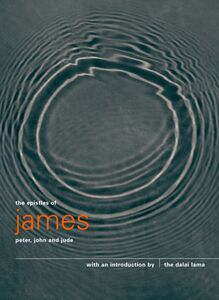-
 Univers
Univers
-
 Ebooks
Ebooks
-
 Livres audio
Livres audio
-
 Presse
Presse
-
 Podcasts
Podcasts
-
 BD
BD
-
 Documents
Documents
-
- Cours
- Révisions
- Ressources pédagogiques
- Sciences de l’éducation
- Manuels scolaires
- Langues
- Travaux de classe
- Annales de BEP
- Etudes supérieures
- Maternelle et primaire
- Fiches de lecture
- Orientation scolaire
- Méthodologie
- Corrigés de devoir
- Annales d’examens et concours
- Annales du bac
- Annales du brevet
- Rapports de stage
La lecture à portée de main
Vous pourrez modifier la taille du texte de cet ouvrage
Découvre YouScribe en t'inscrivant gratuitement
Je m'inscrisDécouvre YouScribe en t'inscrivant gratuitement
Je m'inscrisEn savoir plus
Vous pourrez modifier la taille du texte de cet ouvrage
En savoir plus

Description
Sujets
Informations
| Publié par | Canongate Books |
| Date de parution | 01 janvier 1999 |
| Nombre de lectures | 0 |
| EAN13 | 9780857861009 |
| Langue | English |
Informations légales : prix de location à la page 0,0050€. Cette information est donnée uniquement à titre indicatif conformément à la législation en vigueur.
Extrait
Contents
Title Page a note about pocket canons introduction by fay weldon the first epistle of paul the apostle to the corinthians 2 3 4 5 6 7 8 9 10 11 12 13 14 15 16 the second epistle of paul the apostle to the corinthians 2 3 4 5 6 7 8 9 10 11 12 13 About the Author Copyright
a note about pocket canons
The Authorised King James Version of the Bible, translated between 1603–11, coincided with an extraordinary flowering of English literature. This version, more than any other, and possibly more than any other work in history, has had an influence in shaping the language we speak and write today. Presenting individual books from the Bible as separate volumes, as they were originally conceived, encourages the reader to approach them as literary works in their own right.
The first twelve books in this series encompass categories as diverse as history, fiction, philosophy, love poetry and law. Each Pocket Canon also has its own introduction, specially commissioned from an impressive range of writers, which provides a personal interpretation of the text and explores its contemporary relevance.
introduction by fay weldon
It is hard to like Paul the Apostle. One is not out of sympathy when Ananias the Chief Priest of Jerusalem tries to get him thrown out of town for preaching the Christian gospel and remarks to the Roman authorities, ‘We have found him a pestilent fellow’. There seems to be so little love flowing from Paul, other than ‘in God’ which sometimes seems a way of getting out of the need for it in person, and perhaps why so many cruelties get to be perpetrated in God’s name. Certainly, all, at the time, were in awe of this slippery, preaching, threatening, cajoling young man, always one step ahead of his enemies: he who BC would have been a prophet but ad must be an apostle, he who has a hot-line to God and God to him (or so he says), but like him? No. Many at the time must have suspected that on the road to Damascus this turncoat Paul, once Saul the persecutor of the Christians, did not see God, but rather a path to personal power, twinkling and beckoning in the desert sun. Perhaps Paul the Apostle simply ‘crossed the floor’ in the political parlance of our own country, our own age. When all of a sudden it seems the other side is singing the best tunes, over you go. Why hang around? Enemy becomes friend, and vice versa.
Prating ‘love’, this Apostle Paul rants, rails, reproaches and leads others into mortal danger, preaching the forbidden gospel. Letters to the little groups of Christians, digging in here and there – Corinth, Galatia, Ephesus, Rome itself – model for all revolutionary movements thereafter, confirming them in their dangerous belief. At the time, ‘Behold, I see the heavens opened and the Son of Man standing on the right hand of God’ was a statement sufficiently bold to get poor Stephen – ‘a man full of faith and the Holy Ghost’ – brought before Saul and stoned to death. That was our Saul before Damascus, that was, before he changed his name to Paul; our Saul in full scourging flight, ‘breathing out threatenings and slaughter against the disciples of the Lord’. Does the leopard change his spots as he changes sides?
And doesn’t Paul take up such an annoyingly large chunk of the Bible, after the romance and passion and savagery of the early days are all finished, after that death upon the cross, with his undramatic letters to here and letters to there? A very Mandelson of religious politics, demanding his united front? Listen to Paul in Corinthians . ‘Now I beseech you, brethren, by the name of our Lord, that ye all speak the same thing, and that there be no divisions amongst you, but that you be perfectly joined together in the same judgement.’ Oh, thanks! And it’s to be your judgement, isn’t it, because you have the hot-line to God? Or say you have. Don’t smoke, don’t own guns, don’t be unrighteous, don’t spit in church, let’s have no dissension here! Don’t, don’t, don’t. Put away our adulthood and submit – be as a little child. ‘For now we see as in a glass, darkly, but then face to face.’ How quickly the early church, under Paul’s tuition, ceases to be visionary and turns respectable. How short are the days of miracle and wonder. Believe, behave! Consult, unite! We’re under threat here, and how many divisions did the intellectuals ever have? Ignore them. ‘For it is written I will destroy the wisdom of the wise.’
Judgement is nothing, you men and women of Corinth, clustering together in your ochre landscape, your rough dwellings squatting low upon the burning land. The spirit is all, and the new faith. And what hope this new faith brings. Life is not so short, and brutish and hard as you thought: only believe and you are saved, the Kingdom of God is at hand: oh fortunate generation, with the marvel of the coming of the Son of Man still in living memory.
Though Paul your Apostle never actually met Him face to face he has talked to those who have, and God himself has appeared to Paul once or twice, and sent an Angel to free him from prison (the two gaolers were put to death as a consequence, which always seemed unfair). The Holy Ghost is a familiar visitor too, bringing with him the gift of tongues, the word of God (so long as you can un-garble it), that same gift which charismatic sects still experience today. Though not so terrifying as once it was, the descent of the Holy Spirit is diminished in these cosy days into something seen rather as a relaxing kind of psychotherapy – or else defined as glossolalia, the mere description of a medical condition.
Love is all, writes Paul, so long of course as it’s ‘in God’ and not in the flesh. ‘Marry or burn!’ (What a master of the sound-bite is this Paul!) Spare us from fornication, for the flesh can only exist at the expense of the spirit, so the flesh must be subdued, a doctrine which has suited many ever since.
‘It is good for a man not to touch a woman,’ says Paul and can it be that as a result of these eleven words for near on two thousand years women have been seen as temptation, and blamed, and priests have been celibate, and miserable (or gay) and sex a source of so much shame and degradation? Are men and women so easily led? So easily persuaded to forgo pleasure for the sake of principle? It seems so. Better to be as he himself is, says Paul, and celibate, but if you can’t help it, then marry and behave. At least Paul has this much mercy: perhaps he saw the impracticality of what he wanted to achieve: a world without sex. ‘Let the husband render unto the wife due benevolence: and likewise also the wife unto the husband.’ Well, that’s okay. That’s generous, that’s civilised, that’s better than many manage or preach today, let alone then. Kindness and good manners get us a long way.
And next to sex there’s bad company. ‘Adulterers and effeminates: revilers and abusers of themselves with mankind.’ Abhor, abjure! ‘A fornicator, or covetous, or an idolater, or a railer, or a drunkard, or an extortioner: with such a one, no, not to eat.’ Well, that makes sense. My mother, aged ninety, assures me that the breakdown of family life began on the first occasion a person declared guilty in a divorce case was asked to dinner. Forget when they got allowed into the Royal Enclosure at Ascot. Yes, folks, there was a time when moral blame was levelled at those who erred in sexual matters: when the breakdown of a marriage meant one party was guilty and one was innocent and the Court was prepared to say which. Nowadays there’s simply no time for any of that. But who is to say we were not happier then?
And yet because we today don’t much like Paul, it does not mean God was not speaking to him. The ways of the Creator are very strange. Our contemporary judgement, our political, emotional and spiritual correctnesses are not His. The magic of the language of Corinthians must be our evidence as to the actuality or otherwise of revelation. Did the Paul we know write the words? Or did the angels, as he claimed, write through him? Write, not speak, I say advisedly, for every writer knows the moment when the words on the page seem driven not by the mind but by an understanding that they already exist and which the hand merely serves. Remember that these are actual letters, written on parchment rolls, laboriously. They are not, unlike the rest of the Bible, spoken words of myth, fable and history mixed, flowing through a dusty landscape, gathered together from a thousand doubtful sources and recorded by those who often had their own interest to serve. They come from the hand of the writer, and can of course change in translation but that’s about all.
‘Though I speak with the tongues of men and angels,’ writes St Paul the poet, ‘and have not charity, I am become sounding brass or tinkling cymbal. And though I have the gift of prophecy and understand all mysteries and all know ledge: and though I have all faith, so I could remove mountains, and have not charity, I am nothing … Charity suffereth long and is kind: charity envieth not: charity vaunteth not itself, is not puffed up … Doth not behave itself unseemly, seeketh not her own: is not easily provoked, thinketh no evil …’ We all know the passage, and rightly, for it is part of our Christian heritage, even if only to be spoken to us warningly by teachers. (I suspect Kipling based his poem If upon 2 Corinthians 1:13.)
‘Charity’ is often translated as ‘love’, but that word too has become so misused it begins to lose grandeur. The original word derives from the Roman caritas , usually translated as ‘affection’ but that too in context lacks gravitas. Our new ‘empathy’ is probably nearer to the actual meaning, but who could use such a base and modern word for so magnificent a usage? What is meant, I think, by ‘charity’ is the unexpected lurch of the heart towards others which can take the soul by surprise. So
-
 Univers
Univers
-
 Ebooks
Ebooks
-
 Livres audio
Livres audio
-
 Presse
Presse
-
 Podcasts
Podcasts
-
 BD
BD
-
 Documents
Documents
-
Jeunesse
-
Littérature
-
Ressources professionnelles
-
Santé et bien-être
-
Savoirs
-
Education
-
Loisirs et hobbies
-
Art, musique et cinéma
-
Actualité et débat de société
-
Jeunesse
-
Littérature
-
Ressources professionnelles
-
Santé et bien-être
-
Savoirs
-
Education
-
Loisirs et hobbies
-
Art, musique et cinéma
-
Actualité et débat de société
-
Actualités
-
Lifestyle
-
Presse jeunesse
-
Presse professionnelle
-
Pratique
-
Presse sportive
-
Presse internationale
-
Culture & Médias
-
Action et Aventures
-
Science-fiction et Fantasy
-
Société
-
Jeunesse
-
Littérature
-
Ressources professionnelles
-
Santé et bien-être
-
Savoirs
-
Education
-
Loisirs et hobbies
-
Art, musique et cinéma
-
Actualité et débat de société
- Cours
- Révisions
- Ressources pédagogiques
- Sciences de l’éducation
- Manuels scolaires
- Langues
- Travaux de classe
- Annales de BEP
- Etudes supérieures
- Maternelle et primaire
- Fiches de lecture
- Orientation scolaire
- Méthodologie
- Corrigés de devoir
- Annales d’examens et concours
- Annales du bac
- Annales du brevet
- Rapports de stage




















